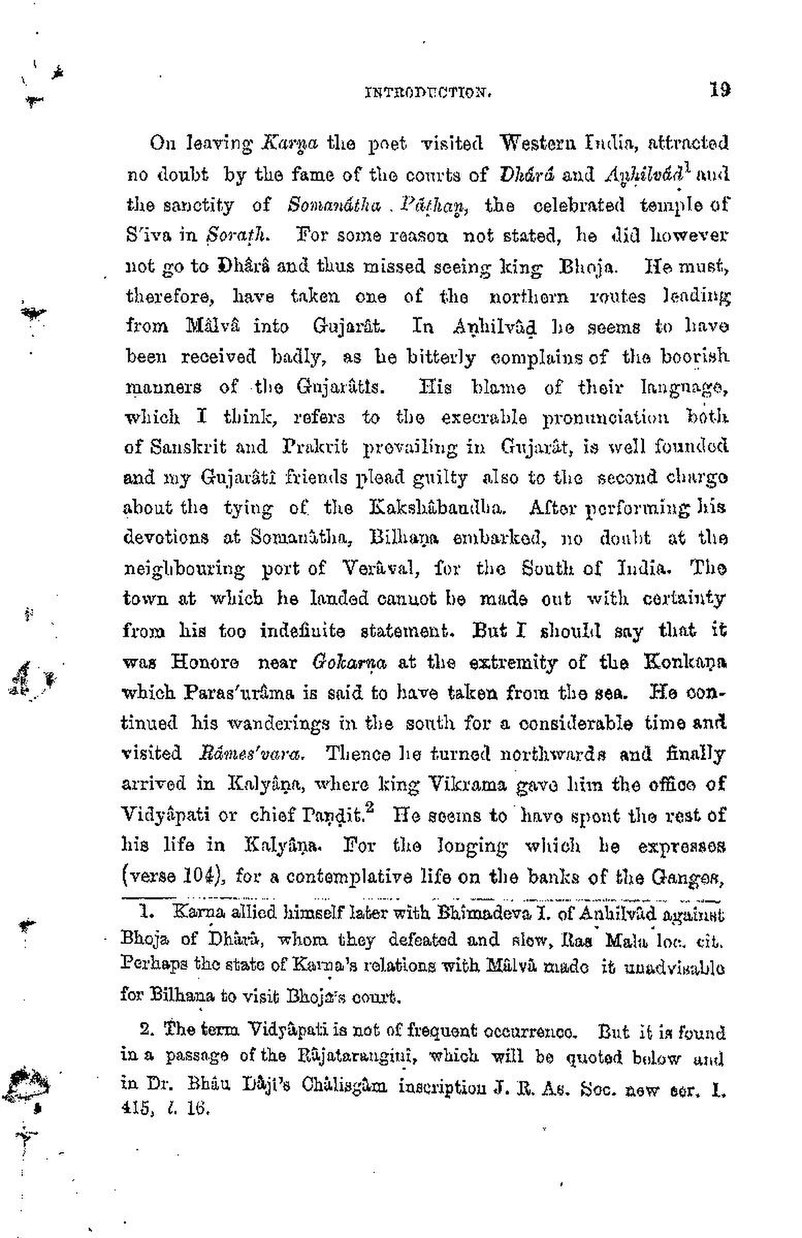हुए
INTRODUCTION.
19
On leaving Karga the poet visited Western India, attracted
no doubt by the fame of the courts of Dhárd and Ayhilvád¹ and
the sanctity of Somanátha Pathan, the celebrated temple of
S'iva in Sorath. For some reason not stated, he did however
not go to Dhârâ and thus missed seeing king Bhoja. He must,
therefore, have taken one of the northern routes leading
from Mâlvâ into Gujarat. In Anhilvâd he seems to have
been received badly, as he bitterly complains of the boorish
manners of the Gujarâtts. His blame of their langnage,
which I think, refers to the execrable pronunciation both
of Sanskrit and Prakrit prevailing in Gujarât, is well founded
and my Gujarati friends plead guilty also to the second charge
about the tying of the Kakshibaudha. After performing his
devotions at Somanatha, Bilhana embarked, no doubt at the
neighbouring port of Verâval, for the South of India. The
town at which he landed canuot be made out with certainty
from his too indefiuite statement. But I should say that it
was Honore near Gokarna at the extremity of the Konkaņa
which Paras'urâma is said to have taken from the sea. He con-
tinued his wanderings in the south for a considerable time and
visited Rámes'vara. Thence he turned northwards and finally
arrived in Kalyana, where king Vikrama gave him the office of
Vidyapati or chief Pandit. He seems to have spont the rest of
his life in Kalyana. For the longing which he expresses
(verse 104), for a contemplative life on the banks of the Ganges,
1. Karna allied himself later with Bhimadeva I. of Anhilvad against
Bhoja of Dhari, whom they defeated and slow, Ras Mala loc. cit.
Perhaps the state of Karma's relations with Mâlva made it unadvisable
for Bilhana to visit Bhoja's court.
2. The term Vidyâpati is not of frequent occurrenco. But it is found
in a passage of the Rajatarangini, which will be quoted below and
in Dr. Bhâu Daji's Chalisgâm inscription J. R. As. Soc. new ser. I.
415, l. 16.
पृष्ठम्:विक्रमाङ्कदेवचरितम् - बिल्हण.pdf/२३
एतत् पृष्ठम् अपरिष्कृतम् अस्ति

